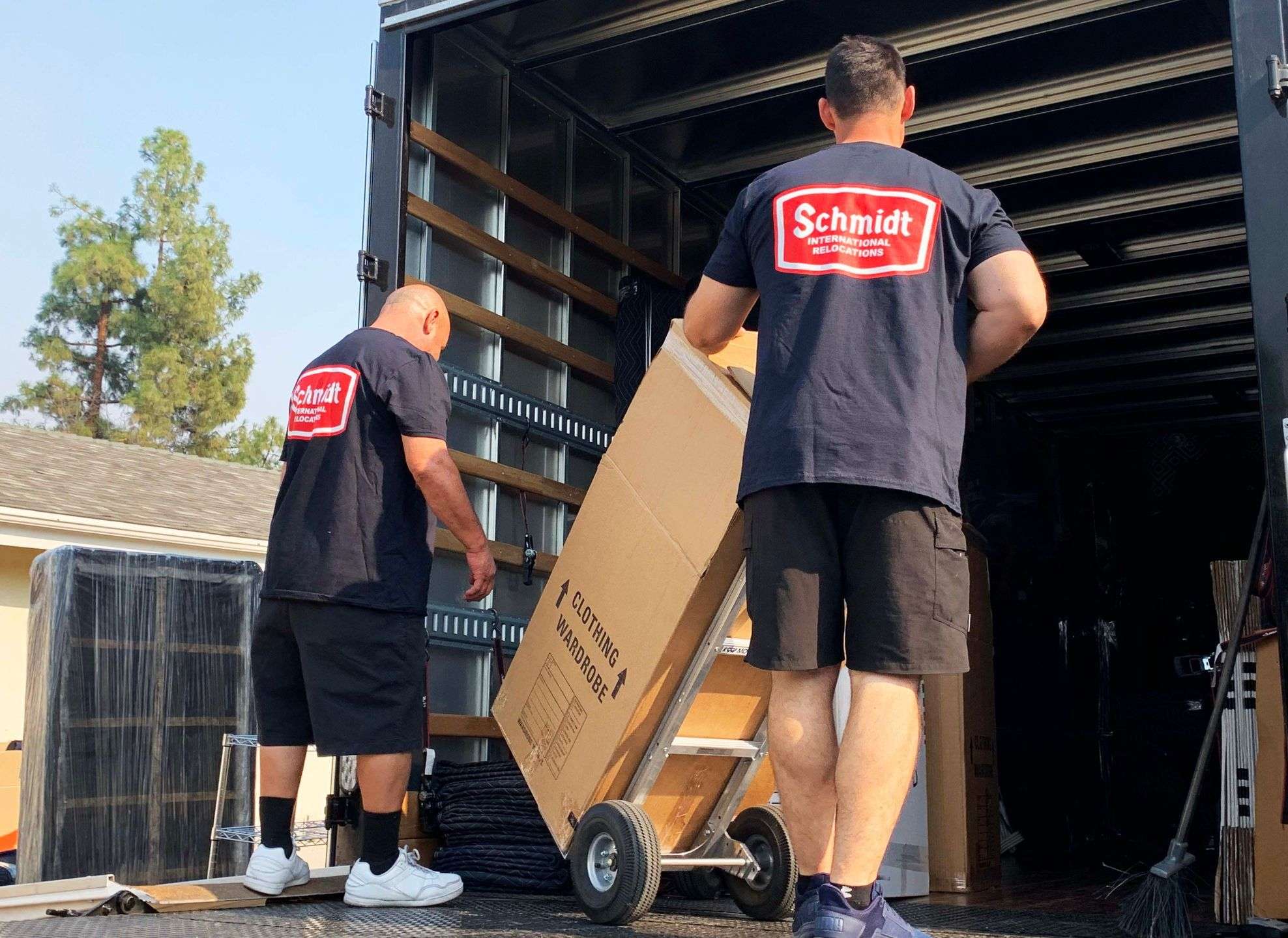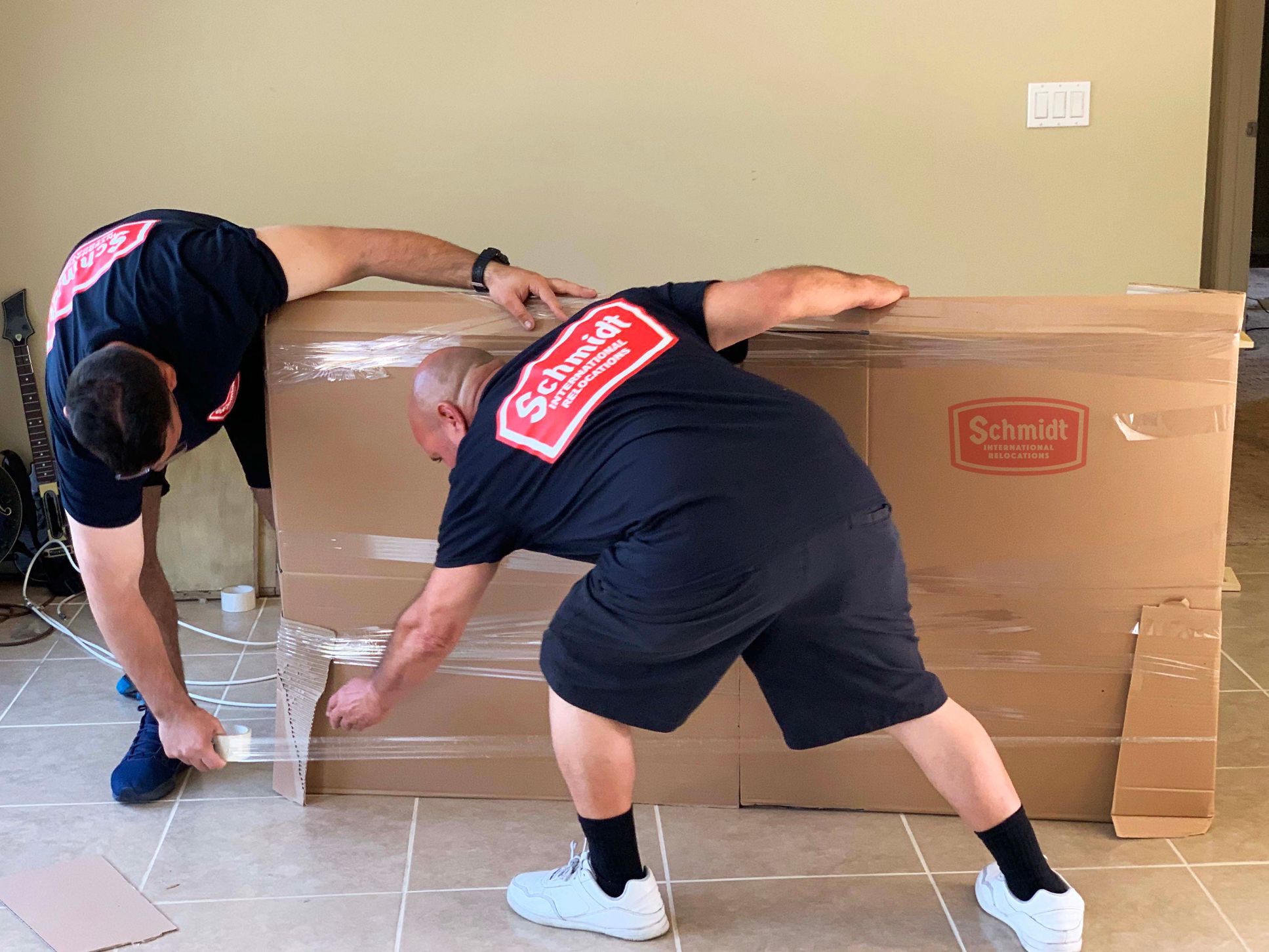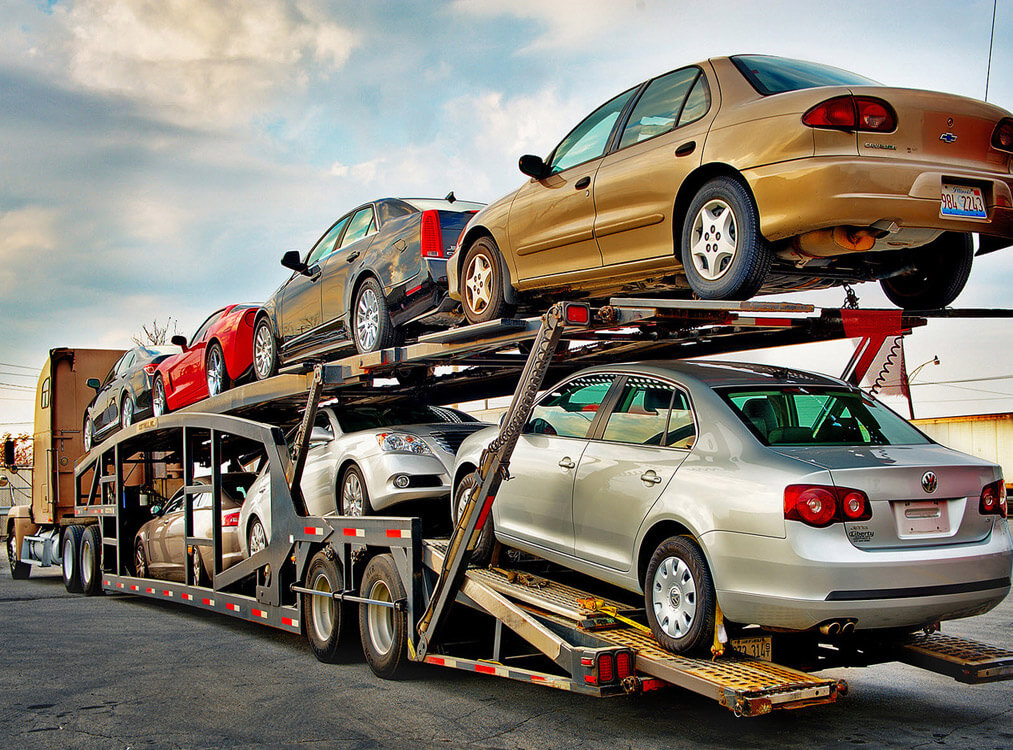

Embarking on an international move is a journey filled with excitement and new possibilities. To ensure a seamless transition, it’s crucial to know what not to pack when moving across the world. Learn all practical advice that will help you to lighten your load and focus on the most essentials. This knowledge not only simplifies the move but also paves the way for an inspiring start in another country.
So, what are some things to throw away when moving overseas? When creating a moving internationally checklist, among the items you should consider leaving behind are bulky furniture and large appliances because they are often impractical and expensive to transport. Similarly, perishable foods, hazardous materials, and items with strict customs regulations, like certain plants, are best disposed of. Reducing the load of replaceable items like old clothes, outdated electronics, and region-specific possessions (like power adapters incompatible with the new location) can significantly ease your transition.
Understanding International Moving Restrictions
Different countries have unique regulations regarding what can be brought across their borders. These restrictions often include certain types of food, plants, animals, and various materials that might be commonplace in your home country but are prohibited elsewhere due to environmental, health, or security concerns.
Being informed about these regulations prevents potential legal complications and ensures that the belongings are not held up or confiscated by customs. This knowledge not only facilitates a smoother and safer move but also demonstrates respect for the laws and practices of the new home, setting a positive tone for an international relocation.
What Not to Pack When Moving? Identify the Non-essentials
When crafting a relocation to-do list, identifying non-essential belongings is key to moving efficiently. Most people relocate
- Household goods,
- Office equipment,
- Electronics.
However, some unexpected and old items should not be placed on the packaging list. This section explores various categories of belongings that might not be necessary to bring along. Understanding what falls into these categories helps streamline the process, ensuring a more organized and less burdensome transition.
Bulky, Heavy, or Rarely Used Items
Bulky, heavy, or rarely used belongings can pose significant challenges, especially when moving into a smaller home. Such belongings include large furniture, outdated appliances, and hobby-related equipment that’s not frequently used.
Consider selling or donating these belongings to alleviate the problematic anxiety about relocating. This approach not only reduces physical load but also offers a chance to reassess what’s truly essential.
Duplicate Items and Replaceable Goods
Duplicate belongings and easily replaceable goods often don’t justify the effort and cost to prepare for a relocation. This includes extra sets of dishes, multiple electronic gadgets, and surplus home decor.
Reevaluating the reasons to relocate something internationally can significantly lighten the load, and duplicates should be completely ditched. It’s an opportunity to declutter and prioritize, focusing on essentials and sentimental belongings.
Seasonal Clothing and Region-Specific Items
Seasonal clothing and region-specific items, like heavy winter coats in a move to a tropical climate, are often unnecessary. Selling these on online marketplaces can contribute to less moving stress and support relocating on a low budget. This step not only reduces the volume of belongings to transport but also provides a chance to adapt your wardrobe and possessions to better suit your new environment.

Prohibited and Restricted Items
When compiling an essential packing list for moving overseas, knowing the nuances of prohibited items in international moves is vital. These restrictions vary by country but generally encompass items that pose a threat to safety, health, or the environment. This includes a wide range of materials, from certain chemicals to cultural artifacts.
Being aware of these prohibitions is not just a matter of compliance. It’s about ensuring a smooth and untroubled transition. As the time to move draws near, thorough research and careful planning become key components in avoiding potential legal entanglements and ensuring that your relocation proceeds without unnecessary hindrances.
Hazardous Materials: Flammable Liquids, Explosives, Toxic Substances
The prohibition of hazardous materials such as flammable liquids, explosives, and toxic substances is a common theme in international relocation, particularly relevant for those moving out for the first time. These items pose a high risk of accidents and are subject to stringent transportation regulations.
For individuals embarking on an international move, it’s essential to identify and properly dispose of these hazardous materials ahead of time. Seeking guidance on safe disposal methods and understanding the legal implications of transporting such substances are crucial steps in preparing for a safe move.
Perishable Items – Food, Plants, and Certain Animal Products
Perishable things, including food, plants, and certain animal products, often find themselves on the prohibited list when relocating across the world. The primary concern with these items is the risk they pose in terms of spreading diseases and pests, which can have devastating effects on the ecosystem and agriculture of the destination country.
To determine what to keep and what to leave behind, individuals should research the specific regulations of their destination country and consider donating to Goodwill and The Salvation Army or responsibly disposing of these items before departure. This approach not only aligns with global biosecurity efforts but also streamlines the moving process, allowing for a more focused and efficient packing strategy.
Weapons, Drugs, and Certain Medications
Weapons, illegal drugs, and certain medications are often subject to strict control or outright prohibition in many countries. When planning a relocation, it is imperative to understand the legal framework surrounding these items. Each country has its own set of rules and regulations, and ignorance of these laws can lead to serious legal consequences.
It’s important to research and prepare necessary documentation for any legally prescribed medications and to understand the implications of transporting weapons or controlled substances. This preparation is crucial to avoid legal complications and ensure that the relocation process is as stress-free as possible.

Get Rid of Some Electronics and Electrical Items
When relocating to a new home, especially in a different country, it’s important to consider the compatibility of your electronics and electrical items. Voltage and plug types vary significantly across the world, which can render many of the devices unusable or even dangerous in the new location.
For instance, a device designed for 110V used in a 220V country without proper conversion can be damaged or cause safety hazards. The shape of plugs and the availability of sockets can differ, necessitating cumbersome adapters. Instead of transporting these incompatible items, consider selling or donating them before the relocation.
Invest in new, locally compatible appliances and electronics once you’ve settled in, ensuring safety and convenience
If you want to dispose of old gadgets not necessary during the relocation, watch the video below for more details about how to carry this out effectively:

Legal and Documentation Considerations
Essential documents like passports, visas, birth certificates, marriage certificates, medical records, and important financial documents should always be kept on hand. It’s a common mistake to pack these vital documents with other shipped belongings, which risks them being misplaced. Carry them with you to ensure immediate access when needed.
It’s advisable to make multiple copies of these documents and store them securely in different locations. If you’re relocating for work, keep employment-related paperwork readily accessible.
Consider the legal requirements of the destination country, such as residency permits or vehicle registration documents, if applicable. Proper organization and handling of these documents can significantly ease the transition, helping one to avoid bureaucratic hurdles.
Ask Movers Want Not to Pack When Moving Abroad
Once you choose an international moving company, it’s essential to consult with them about what to pack. Experienced movers can provide a wealth of information, including a detailed list of items they won’t move due to legal, safety, or practical reasons. This might include hazardous materials, perishables, or items of high sentimental value.
Ask for guidance and invest in moving by sea services as well as packing services to make sure everything is carried out perfectly. Additionally, the movers can offer invaluable advice on packing techniques and materials that are suitable for international transit, ensuring all belongings are safely and securely transported to the new home.
Don’t Fall Into the Trap of Scammers
Be vigilant to avoid scammers. Some information from movers can seem too good to be true, and in most cases, it is. However, by knowing about scams, it’s easier to determine whether you’re dealing with a truthful company. Here are some red flags to look out for:
- Lack of physical address – Legitimate companies will have a physical office and reachable contact details.
- Unusually low quotes – Be wary of quotes significantly lower than the market rate. This could be a bait-and-switch tactic.
- Request for a large deposit upfront – Most reputable movers do not require large deposits before the move.
- No in-home estimate – Reliable movers usually conduct an in-home estimate to provide an accurate quote.
- No license or insurance information – Legitimate movers will have valid licenses and offer insurance for all belongings.
- Poor reviews or no online presence – Check for reviews and the company’s history online. A lack of presence or negative reviews can be a warning sign.
Vague or non-existent contract – A professional company provides a detailed contract. Avoid companies with vague agreements or those reluctant to provide a contract.
What Should Be on Your Packing List?
Have you started packing for overseas relocation? Don’t leave without important travel documents like a passport, visa, work permit, and essential legal paperwork. Without these, you cannot travel or establish residency in the new country.
It’s also wise to carry a driver’s license, international driving permit (if applicable), and a small amount of local currency of the destination country. In addition to these, pack a basic first-aid kit, prescription medications with their original labels, and a list of emergency contacts. Don’t forget electronic essentials like a laptop, chargers, and a universal power adapter.
Personal items that help one feel at home, such as a few cherished photographs or a small keepsake, can be comforting in a new environment. Remember, these items are not just necessities. They form the basis of a smooth transition.

It’s Time to Rid Yourself of the Unnecessary and Let Expert Movers Relocate Your Essentials
As you prepare for your international journey, remember that letting go of the unnecessary and focusing on essentials is key to a successful transition. Expert movers play an invaluable role in this process, ensuring that the most important belongings are handled with care. At Schmidt International Relocations, we’re committed to making the move as seamless and stress-free as possible. We invite you to contact us for any information or assistance you might need. Our team of experienced professionals is ready to guide you every step of the way.
FAQ
How Do I Determine What Electrical Items to Take?
Research the standard voltage and plug/socket type of your destination country. Items incompatible with these standards may require transformers or adapters, which can be cumbersome.
Also, assess the size and necessity of each item. Bulky or rarely used electronics might not be worth the cost and effort to transport. For items that are essential, like laptops or smartphones, ensure they are adaptable to different voltages or plan to purchase appropriate adapters.
What’s the Best Way to Handle Sentimental Items?
First, evaluate the importance of each item. If it holds significant sentimental value, it’s worth taking with you or finding a safe way to transport it. For larger or more delicate items, consider if there are ways to preserve their memory without physically taking them, such as through photographs or digital copies. If you decide to take these possessions, ensure they are properly packed and, if needed, consider special handling or insurance.
How Can I Check My Destination Country’s Prohibited Items List?
To check the destination country’s prohibited items list, start by visiting its official customs and immigration website. These sites typically have detailed information on items that are not allowed or require special permits. Additionally, contacting the embassy or consulate of the destination country can provide up-to-date and comprehensive information.
What Should I Do With Items I Can’t Take With Me?
For items you can’t take with you, consider several options – selling, donating, or storing them. Selling possessions, especially those of value or in good condition, can provide extra funds for the move.
Online marketplaces or garage sales are effective ways to do this. Donating belongings to charity or giving them to friends and family can ensure they’re still used and appreciated. For items with sentimental value or potential future use, renting a storage unit could be a solution.
How Do I Transport Important Legal Documents?
Transporting important legal documents requires careful planning and security. These documents should always be carried with you rather than packed with shipped belongings.
Use a secure, waterproof document holder or folder to keep them organized and protected. Make electronic copies of all important documents and store them securely online or on a USB drive as a backup. If you’re traveling by air, keep these documents in your carry-on luggage.














